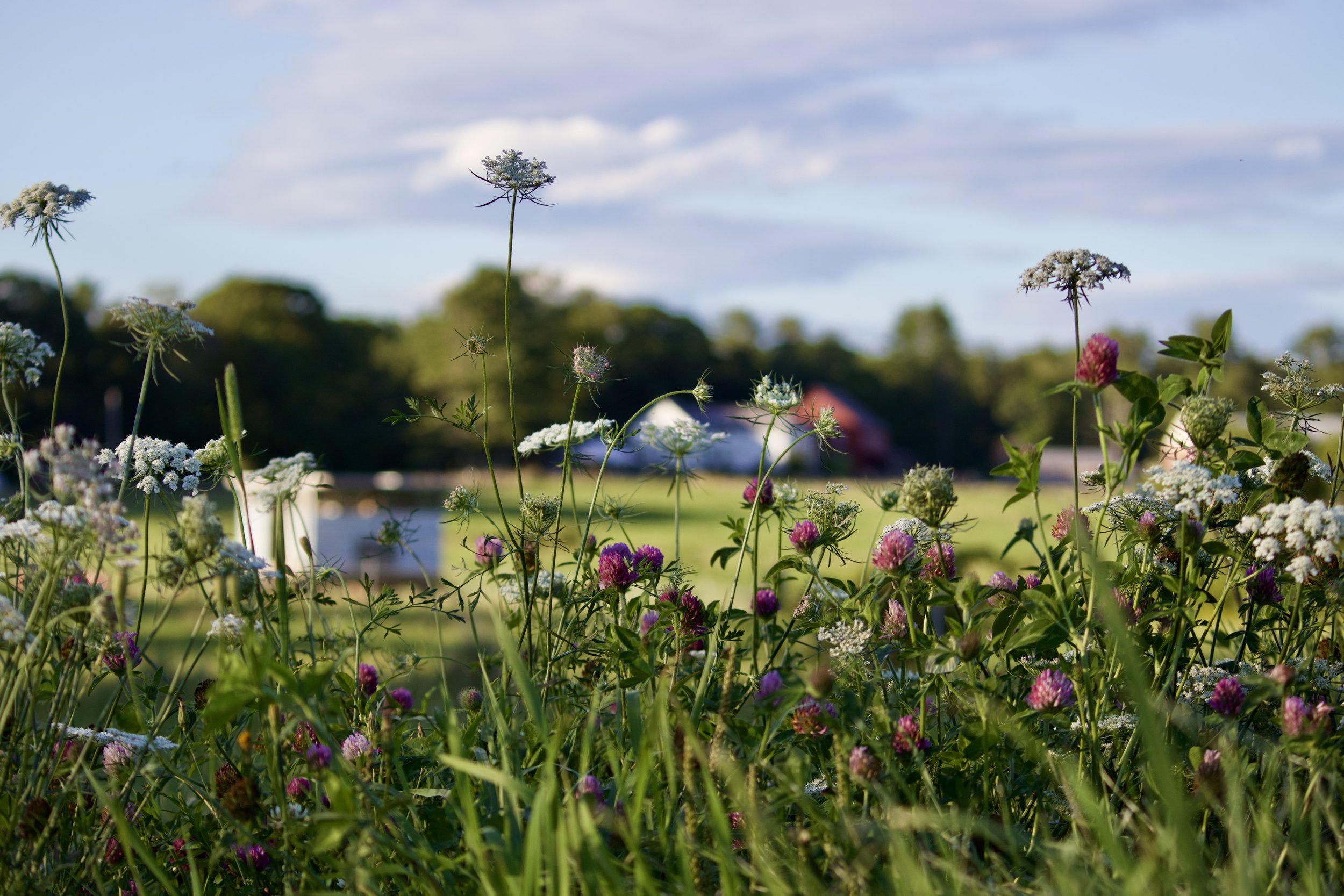Rooted in Good Stewardship: Healthy Fields and Livestock
Grasslands are vital carbon sinks that cover over a third of the planet’s surface. Naturally adapted to disturbances like fire and grazing livestock, native grasses produce most of their biomass in the form of underground roots.
These roots deposit carbon deep into different soil layers, allowing grasses to sequester and stabilize carbon. As land stewards, we recognize this and manage our pastures to ensure healthy and sustainable grazing at Wolfe’s Neck Center.
By managing these factors, humans help support a healthy symbiotic relationship between cows and grasses. That is why our dairy herd may not be visible from this spot – we move them to a new paddock every 12 hours during the grazing season, ensuring that each paddock has time to regenerate.
Our cows graze upon a variety of grasses while leaving, in return, nitrogen-rich manure behind.
This grazing and added nitrogen cycle stimulates the plants to regenerate and develop stronger, deeper roots, which stabilizes pastures against erosion and sequesters carbon.
It is a fine balance, however. Too many cows, or too frequent grazing on pastures, can inhibit the regeneration and sequestration processes.
Our work at Wolfe’s Neck Center
Wolfe’s Neck’s Organic Dairy Research and Training Program:
We already know that careful pasture management can lead to healthy soils, but measuring and tracking the effect of management on soil organic carbon (SOC) is an area of active science and innovation. Our Organic Dairy Research Facilities serve as a testing ground for new management technologies and techniques, while also training the next generation of farmers in rotational grazing and regenerative agricultural systems.
As a demonstration and education hub, we engage with partners locally, regionally, and nationally.
For example, The Soil Inventory Project is testing various tools to better track and understand how much SOC is stored in soils and how it’s affected by management of the soil. And with the New England Grazing Network, we’re developing outreach and educational tools to support regenerative grazing and pasture management across our region.
New England Grazing Network:
Wolfe’s Neck Center spearheads the New England Grazing Network (NEGN) project, which includes over 10 partner organizations. This work supports farmers across New England with educational programs, technical assistance, and storytelling to address the challenges of adapting to climate change. Watch this video from the Vermont Grass Farmers Association, one of NEGN’s partners.












